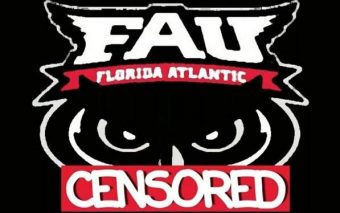
Fired Professor Fights for Free Speech
"The case of Dr. James F. Tracy is arguably the most important free speech case that is going on today."
Originally posted by American Free Press on February 9, 2017
The case of Dr. James F. Tracy is arguably the most important free speech case that is going on today. As it moves through the courts with barely a notice, AFP spoke with Dr. Tracy’s attorney, Louis F. Leo IV, to update us on the current situation of the professor, who was disciplined and then fired last year for blogging on his own time.
By Dave Gahary
Dr. James F. Tracy, the tenured professor and award-winning media analyst who gained national notoriety for daring to publicly question the mainstream media and government view of what happened at Sandy Hook Elementary in 2012 filed an amended complaint last month to his wrongful termination lawsuit against Florida Atlantic University (FAU)—a public school—for violating his rights to free speech following his firing on Jan. 6, 2016.
The original complaint, filed in U.S. District Court for the Southern District of Florida, revealed in great detail how Tracy was harassed, hated, and even hunted for having unconventional opinions on several alleged mass shootings.
Because Tracy espoused views different from those offered by the controlled corporate media and the government, he was targeted for attack and removal.
The mainstream media set their sights on Tracy a few days after the Sandy Hook event, as a warning to others to never dare question the official version of events.
On Jan. 5, AMERICAN FREE PRESS spoke with Tracy’s attorney, Louis F. Leo IV, to discuss the many aspects of the case. He started out by explaining how the attack began.
“There was this media blitz against Professor Tracy that was a result of his personal blogging,” Leo began. “He was on his blog on his own time writing about a matter of public importance, this mass casualty event, and he provided coverage to the American people that the national and international media failed to. And for whatever reason they targeted him and his job.”
What Tracy wrote “was constitutionally protected, so regardless of what his opinion was on the lack of evidence of the shooting, he had the right to say it,” said Leo.
“On Jan. 11, 2013, CNN dedicated 15 or 20 minutes just to Professor Tracy,” Leo said, “shaming him, showing the entire United States where Professor Tracy lives. They were literally outside his house.”
CNN’s Anderson Cooper led the charge against Tracy, stating in the aforementioned broadcast, “shame on you, FAU, to even have someone like this on your payroll.” Cooper, who has no formal journalistic education, spent two summers following his sophomore and junior years at Yale—a well-known recruiting ground for the Central Intelligence Agency (CIA)—interning at their headquarters, in a program for students interested in intelligence work. CNN, which confirmed details of Cooper’s CIA involvement to “Radar Online,” claims his involvement with the CIA ended there, although it is more likely he was trained by the spy agency as part of their ongoing Operation Mockingbird, a large-scale program begun in the early 1950s whose purpose is to propagandize the media to influence public opinion.
“That was really the gist of all the media publications about Professor Tracy,” Leo explained. “None of them talked about his research or the basis for his opinions. They just called him crazy.”
Leo did his due diligence before he took on the case.
“I discovered really quickly that he’s not crazy,” Leo said. “I explored extensively his blog and his opinions and I’ve read the Newtown Police report, I’ve looked at all the evidence, heavily redacted reports, I should say. And I was extremely disturbed by what I read. Not only what I saw, but what I didn’t see.”
Although the process of discovery—a pretrial procedure in a lawsuit in which each party obtains evidence from the other party—has not yet begun, it appears that the faculty union, ostensibly there to protect Tracy, was actually hurting him.
“It remains to be seen exactly what the reasoning of the union was in failing to represent him, misleading him, misadvising him, not to mention discouraging him, coercing him, and really acting in a way that FAU was acting,” Leo explained. “They were basically doing FAU’s bidding by subjecting him to unlawful directives and ultimately violating his civil rights and his right to freedom of speech, and academic freedom, as well as his right to due process.”
Records were obtained utilizing Florida’s “Sunshine Laws,” which generally refer to Florida’s freedom of information legislation, the most expansive laws of their kind in the U.S. Specifically, Florida’s “Government in the Sunshine Law,” which passed 50 years ago but with precedent back to 1905, “requires that all meetings of any state, county, or municipal board or commission be open to the public, and mandates that any official action taken at the closed meeting not be binding.”
AFP asked how much was received.
“Hundreds and hundreds of pages of internal communications, records, and his personnel file,” Leo said, “and what we did receive and review was pretty shocking. These internal communications show that they’re really not firing him because of a policy that he didn’t comply with. He’s being fired because of the controversy surrounding his personal blogging.”
Leo highlighted the significance of this case beyond FAU and Florida.
“This is alarming because it’s not just happening at FAU, and this case is not going to affect just this one university,” Leo explained.
“This is really a test case. This is something that universities are going to be using in the future when shaping their policies or dealing with the speech of their faculty members, as well as other employees and students,” he said.
“This is the First Amendment under attack,” Leo said. “If you allow Professor Tracy to be disciplined and fired for his personal blogging, what’s next, and where does it stop? And what is the First Amendment if this can happen to somebody like Professor Tracy, who has an unremarkable academic record, literally has no complaints about his teaching?”
Contributions to this case can be submitted in the form of personal check or money order, payable to James Tracy Legal Defense Fund, 300 NW 36th Court, Boca Raton, FL 33431. You may also visit Tracy’s website at tracylegaldefense.org.
Dave Gahary writes for American Free Press.



